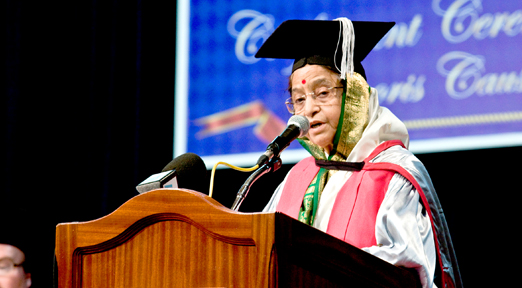
In India “since ancient times there has been a great emphasis on learning. This tradition got translated into a vision, where establishing an educational infrastructure became a priority in our nation building process in the post independence phase. It was due to the strength in our education system, with emphasis on science and technology, that India has been able to assume a leadership role in Information Technology and other knowledge based sectors. We continue to lay great emphasis on education. Primary education is now a fundamental right; we are working towards the universalization of secondary education and augmenting our tertiary education institutions.” – Speech at University of Mauritius, 2011.
Primary Education System
Inaugurating the International Conference on “Women’s Literacy for Inclusive and Sustainable Development” she maintained that “education is critical for achieving growth and more so, in knowledge based societies, where lack of education is in itself an impediment to progress… India has accorded high priority to meeting the education requirements of the country, and to extend the frontiers of literacy in the nation.” During her Presidential tenure, she aggressively championed the “Sarva Shiksha Abhiyan” under which free and compulsory education is provided to children from the age of 6 to 14 years.
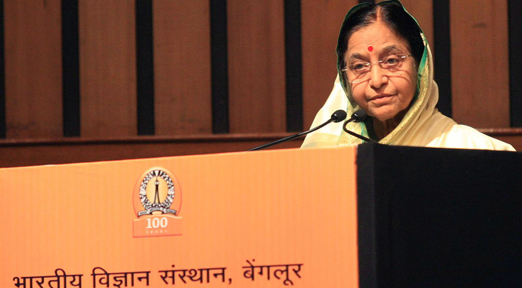
Female Literacy
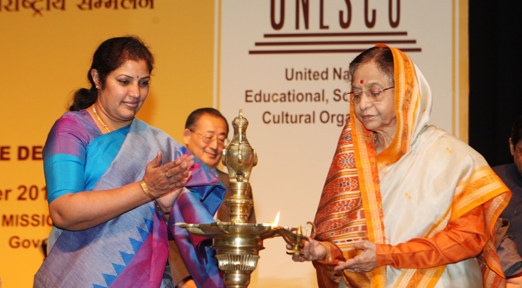
“Increasing female literacy has the potential of becoming a force multiplier in pushing forward the socio-economic development of the nation. If we make women literate, they will be self reliant and the beneficial impact on society will be manifold. It is said that if you educate a boy, you educate an individual, but if you educate a girl, you educate the whole family. when women are taught how to read and write, they in turn begin to send their girl child to school, breaking the pattern of social gender discrimination, which is a strong barrier to girl’s education. What they need is an opportunity to educate themselves. Ability without opportunity is of little account. If educated, and if opportunity is made available to them, they are second to none. It is important that in schools, girls must get equal opportunity to study and acquire necessary skills and knowledge.” – Speech at International Conference on “Women’s Literacy for Inclusive and Sustainable Development” on the occasion of International Literacy Day, New Delhi, 8th Sept, 2011
University Education
“The role of universities in the socio-economic development of a country in today’s knowledge-based and technology-driven world. The biggest challenge for universities is how to prepare the youth for the opportunities and challenges of a globalised world that is constantly changing and ever evolving. Education must give to the students the ability to analyse, the capacity to think, to act with humility and be individuals willing to contribute to nation building as well as to preserve the planet for the future generations and working for the welfare of humankind….” Honorary Doctorate Acceptance speech in University of Chile, Santiago. Madam strongly believes that education brings progress, enlightenment and real salvation in human beings. India’s growth in economy, rise in political consciousness and socio-cultural awareness among people, and India’s elevation as a key global player has been possible only due to the augmentation of education. Smt. Patil strongly believes that the developing countries of the world should collaborate with a broader vision in the sector of education. The developing countries share the same kind of experiences in almost all the aspects.
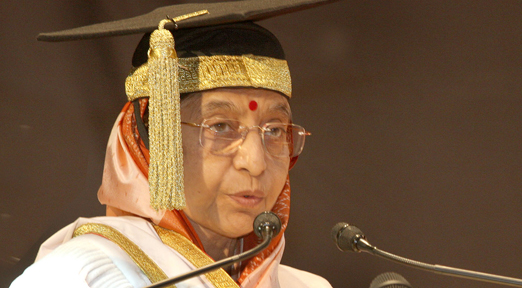
Global Collaboration in Education
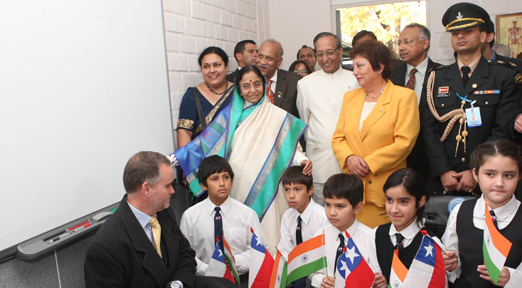
Since education has the enchanting powers of transforming the society all the countries of the world should co-operate and collaborate with each other in the field of education. Sharing of expertise, techniques and policies on education among the countries of the world will certainly help to introduce new impetus to the education sector in their countries. Smt. Pratibha Patil strongly believes that it is the collaboration with the countries of the world in the sectors of education that will give new dimensions to our approach towards education. Education needs to cater to not only the diversity of a country but also to the diversity of the world. In the present day globalized world we speak of globalized citizens, a human being not confined to a particular territorial boundary, and we can create world citizens only when the youth or the younger generation are exposed to the diversity of the world. This is possible through the collaboration in education.


Indian Education System